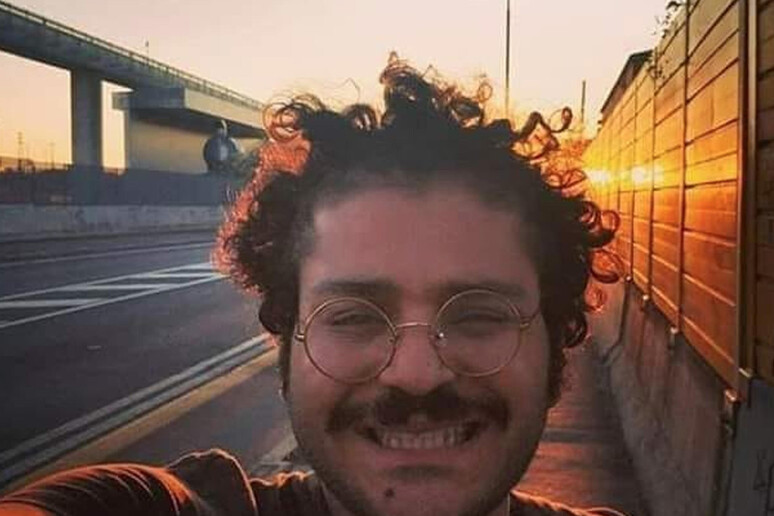Italy has got the EU to monitor
the case of a 27-year-old Egyptian studying at Bologna
University who has been arrested in Cairo in a case which rights
groups say might be similar to that of Giulio Regeni, the
28-year-old Cambridge doctoral researcher tortured to death in
the Egyptian capital in early 2016.
Patrick George Zaky was arrested last Thursday at Cairo
airport and his lawyer says he was tortured with electrical
shocks.
The human rights lawyer, Wael Ghally, told Il Fatto
Quotidiano newspaper Sunday that "he was not beaten with sticks
so as not to leave marks of torture".
Zaky is also a human rights activist as well as being a
student at Bologna, where he is doing a master's in gender
studies.
Amnesty International also says Zaky was "probably tortured".
Zaky has been charged with instigation to protest and
spreading false news.
The Italian foreign ministry said Sunday that Foreign
Minister Luigi Di Maio has been following the case "from the
start".
It said Di Maio had asked the EU to set up monitoring of
Zaky's case via its embassies in Cairo.
For the moment Zaky has been placed in preventive custody for
15 days.
Amnesty said the case reminded them of that of Regeni, a
student from Friuli who was researching the politically
sensitive subject of street sellers' unions, whose leader had
fingered him as a spy to secret services.
Regeni's father said last week that failings in the effort to
get to the bottom of his son's death were not limited to the
Egyptian side.
In particular, he took issue with Italy's failure to recall
its ambassador to Cairo in protest at the lack of cooperation
from the Egyptian authorities.
"There are grey zones both on the side of the Egyptian
government, which is recalcitrant and does not cooperate as it
should, and on the Italian side, which has not yet withdrawn our
ambassador to Cairo," Claudio Regeni told the parliamentary
commission of inquiry into his son's murder.
"We have been calling for the ambassador's withdrawal for
some time".
The mutilated body of the Cambridge researcher into Cairo
street unions was found on the highway to Alexandria on February
3, 2016, a week after he disappeared in the Egyptian capital on
January 25, the heavily policed fifth anniversary of the
uprising that ousted former strongman Hosni Mubarak.
His mother said she had only been able to recognise him "by
the top of his nose".
Magistrate Giuseppe Pignatone, who was Rome chief prosecutor
at the time of Regeni's killing, said Monday that the Cairo
prosecutor's office hasn't made any progress on the
investigation since December 2017, when Rome named five members
of the Egyptian security apparatus as suspects.
At various stages, Egypt has put out several purported
explanations for his death including a car accident, a gay
lovers' tiff turned ugly and a kidnapping for ransom in which
the alleged gang, criminals but later found innocent of the
Regeni murder, were wiped out after his documents had been
planted at their lair.
Judicial cooperation between Rome and Cairo prosecutors dried
up after the Roman prosecutors placed the five members of the
security apparatus under investigation.
Last month Rome prosecutors Sergio Colaiocco and Michele
Prestipino said that Regeni was caught by a "spider's web" spun
by the Egyptian security services.
"A spider's web was spun around Giulio Regeni by the Egyptian
National Security Service in October (2015) before the
kidnapping and murder," Colaiocco and Prestipino told a
parliamentary commission of inquiry into the Friuli-born
student's death.
"A spider's web in which the (security) apparatus used the
people who were closest to Giulio in Cairo, including his lawyer
flat mate, the street traders union representative and Noura
Whaby, his friend who helped him with translations".
"It was a spider's web that closed in more and more and which
Giulio ended up in the middle of".
Egyptian President Abdel Fattah el-Sisi has denied any
official involvement in Regeni's death.
Sisi reiterated to Premier Giuseppe Conte in Cairo last month
that Egypt wants to get to the truth in the case.
ALL RIGHTS RESERVED © Copyright ANSA











